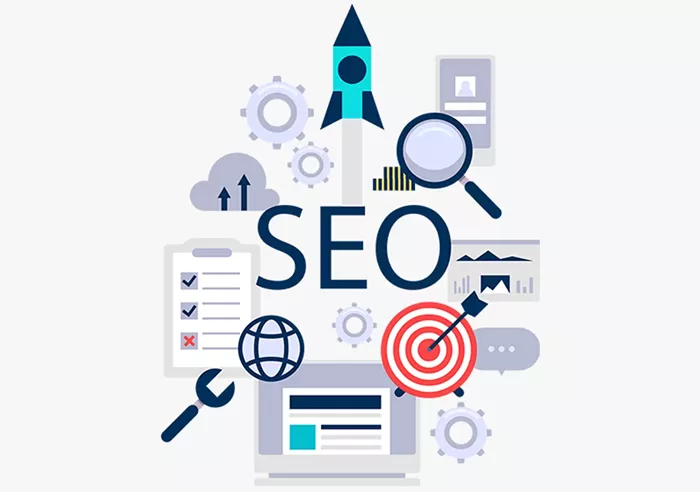SEO used to feel like guesswork, but that’s no longer the case. A digital marketing agency known for its pay-per-click (PPC) expertise has revealed how it turned traditional SEO into a precise, performance-driven growth engine.
In 2024, sweeping changes in search engines and AI technologies have reshaped how content is presented and discovered. Once overlooked, SEO has become an essential skill. The rise of AI-powered search experiences—including ChatGPT, Perplexity, and Google’s AI Overview—has changed how users interact with content. This evolution has pushed SEO from a slow, intuition-driven process into a technical, structured, and intent-focused opportunity.
The agency, which has built its reputation on immediate, data-driven PPC results, had long avoided SEO. They viewed SEO as a vague and sluggish system, influenced more by Google’s algorithm shifts and guesswork than clear, repeatable methods. Their focus remained on weekly performance metrics and rapid growth, making SEO feel misaligned with their business model.
PPC and SEO have often competed for visibility in search results, speaking very different “languages.” PPC delivers instant clarity and measurable outcomes, while SEO promises long-term compounded value. However, the agency lacked the right talent, investment timelines, and viable strategies to engage in SEO — until 2024.
The surge of AI-driven search changed everything. Structured data, semantic context, and machine-readable signals became the new gatekeepers for organic visibility. SEO optimization shifted from being solely Google-focused to being optimized for language models that answer questions, summarize reviews, and recommend brands. This opened the door to new possibilities.
Recognizing this shift, the agency rolled up its sleeves and built an SEO service centered on what they know best: performance.
They identified why traditional SEO hadn’t worked for them: unclear timelines like “give us six months” don’t fit an agency demanding immediate attention. Tasks such as content calendars, backlink strategies, and domain authority scores don’t directly link to revenue in a way they trust. Reporting focused on keyword rankings felt superficial compared to cost-per-conversion metrics. SEO seemed more like art than science — and unless it could be delivered on their terms, they weren’t interested.
Starting fresh, inspired by PPC workflows, the agency recruited performance-focused SEO talent. This included technically skilled SEO specialists, strategists versed in conversion pathways, and content creators able to write for both users and search engines. They integrated these roles directly into their media teams for smoother collaboration and stronger business alignment.
They carefully selected ambitious clients with sufficient organic data and leadership buy-in to pilot SEO efforts. These clients already saw PPC success but wanted sustainable long-term growth. Rapid testing and iteration yielded demonstrable results, fueling confidence to scale.
The agency focused on foundational SEO elements that produce measurable impact quickly: in-depth technical audits addressing crawlability, indexing, and duplicate content; global structured data implementation; website architecture and internal linking; keyword-to-page mapping aligned with business intent; funnel-stage-appropriate page optimization; and site speed and Core Web Vitals improvements. Their roadmap resembled a prioritized PPC campaign plan — no guesswork, just clear priorities.
Structured data became a top priority. They implemented product, article, and FAQ schema, clarified entities through site organization, and used breadcrumbs and internal links for context. This approach boosted rich snippet appearances, rankings, and click-through rates, bridging organic visibility and AI-powered search results.
Reporting shifted away from 12-page PDFs of rankings and domain metrics. Instead, they presented page-level performance comparisons, conversion rate improvements tied to SEO work, crawl and index progress, structured data coverage, and natural impressions, clicks, and assisted conversions. If it didn’t prove meaningful impact, it wasn’t included.
Looking ahead, the agency is developing tools to track visibility across AI platforms like ChatGPT, Perplexity, and Gemini, prompt-based SEO research systems, scalable schema enrichment, and entity-based content mapping for clients. These efforts will be packaged in a familiar performance-driven marketing framework.
The agency’s final advice for PPC-first marketers is clear: apply the same rigor around impact, ROI, and optimization cycles to SEO. Build systems, hire the right talent, start small, focus on what matters. While late to SEO, they believe changing rules make now the perfect time to join. Done right, SEO can be as — or even more — performance-oriented than PPC.
Related Topics
- The Future of SEO: Shifting to Multi-Channel Growth Strategies
- Adobe Unveils LLM Optimizer to Boost SEO in AI Chatbot Era
- SEO Future: 5 Key Trends for 2025 and 2026

